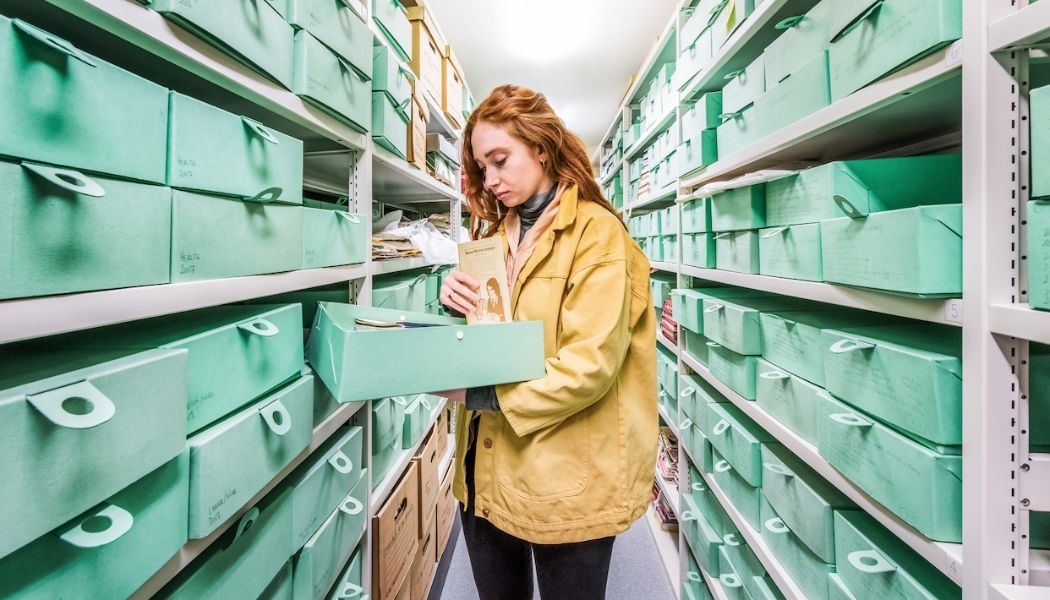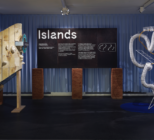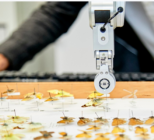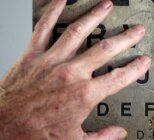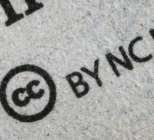Machine learning and citizen-led archiving are among five technology projects to receive a slice of £14.5m funding from the Arts and Humanities Research Council (AHRC) investment project, ‘Towards a National Collection’.
The five research and development ‘discovery projects’, detailed below, will receive approximately £3m each over five years.
This latest investment marks the majority spend of the AHRC’s five-year, £18.9 million project which has been funded through UK Research and Innovation’s Strategic Priorities Fund.
Extending across the UK and involving 15 universities and 63 heritage collections and institutions of different scales, it will have over 120 individual researchers and collaborators, and is the largest programme of its kind yet to be undertaken anywhere in the world.
The aim of ‘Towards a National Collection’, says the AHRC, is “to begin to dissolve barriers between different collections, opening them up to new cross-disciplinary and cross-collection lines of research, and to extend researcher and public access beyond the physical boundaries of their location, thus directly addressing the issues related to accessibility beyond current metropolitan centres.”
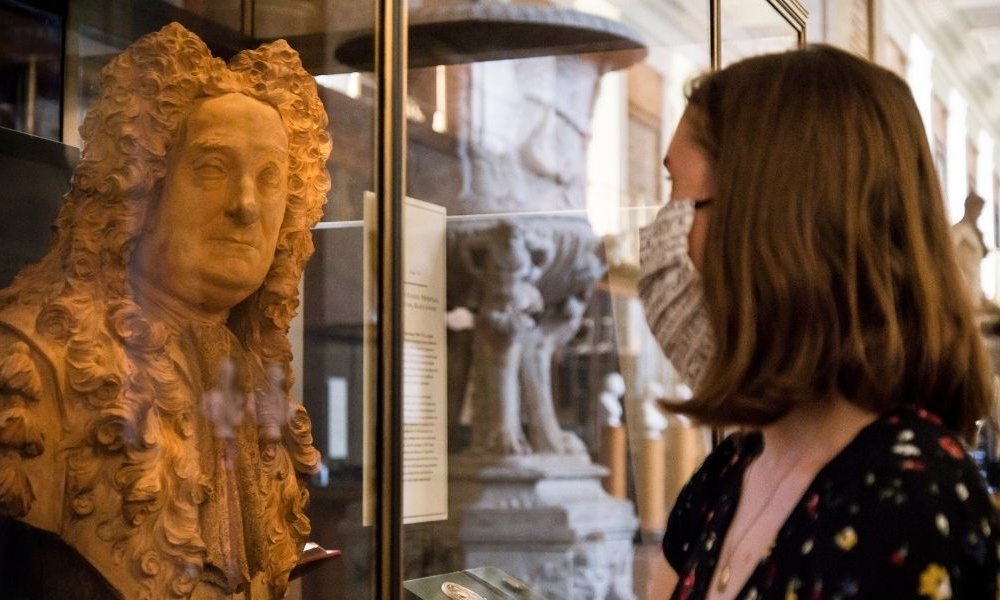
Each of the projects will involve a core collaboration between one or more UK Higher Education Institutions (HEIs) and one or more of AHRC’s Independent Research Organisations (IROs), as well as further collaboration with local and regional cultural, third sector or community organisations.
Rebecca Bailey, Programme Director, Towards a National Collection, said: ‘By harnessing emerging technologies to the creative interdisciplinary talents of our research teams, eventually everyone will have the ability to access an outstanding trove of stories, imagery and research linking together the limitless ideas and avenues in our national collections. From community archives to overlooked artists; from botanical specimens to the ship-wrecked Mary Rose.’
Dr Hartwig Fischer, Steering Committee member and Director, The British Museum added: ‘This unprecedented investment of funding by the AHRC into these five projects will allow us to explore what the digital future for our organisations can and should be. A future where anyone can search across collections cared for in different parts of the UK, to pursue their passion for knowledge and understanding, discover their own pasts and answer their own questions.
“Towards a National Collection will strengthen Britain’s international leadership in this area. Each project in their own rightly deserves to be celebrated and I cannot wait to see what happens when we bring all this talent and dedication together to build the new future for our shared national collection.”
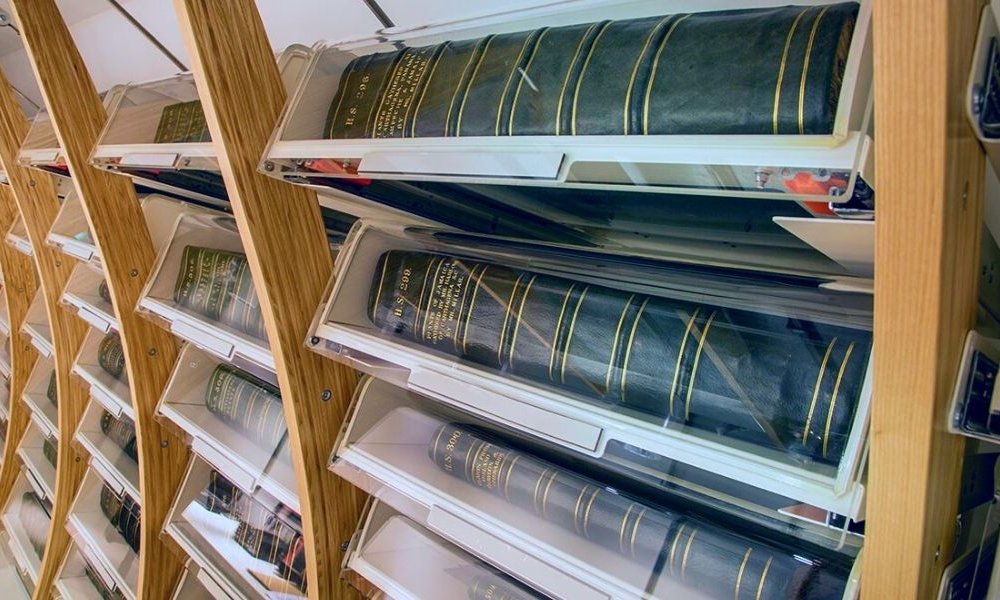
The five Discovery Projects to secure funding
The Congruence Engine: Digital Tools for New Collections-Based Industrial Histories
Principle Investigator: Dr Timothy Boon, Science Museum Group
The Congruence Engine will use computational and AI techniques – including machine learning and natural language processing – to create and refine datasets, provide routes between records and digital objects such as scans and photographs, and create the tools by which participants will be able to enjoy and use the sources that are opened to them.
Project partners: British Film Institute, National Museums of Scotland, Historic Buildings & Monuments Commission for England, National Museum Wales, The National Archives, National Trust, Victoria and Albert Museum, universities of London, Leeds and Liverpool, BBC History, Birmingham Museums Trust, BT Heritage & Archives, Grace’s Guide to Industrial History, Isis Bibliography of the History of Science, National Museums of Northern Ireland, Saltaire WorldHeritage Education, Association Society for the History of Technology, Whipple Museum of the History of Science, Tyne & Wear Archives & Museums (Discovery), Bradford Museums and Galleries, Wikimedia UK & MadLab.
Our Heritage, Our Stories: Linking and searching community-generated digital content to develop the people’s national collection
Principle Investigator: Professor Lorna Hughes, University of Glasgow
Our Heritage, Our Stories will bring together researchers in digital humanities, archives, history, and computer science with archive development, in an effort to ‘dissolve’ existing barriers and develop scalable linking and discoverability for community-generated digital content (CGDC).
The project will make CGDC more discoverable and accessible whilst respecting and embracing its complexity and diversity by co-designing and building sophisticated automated tools to discover and assess CGDC ‘in the wild’, to link it and make it searchable.
This new accessibility will be showcased through a major new public-facing CGDC online Observatory at The National Archives where people can access, reuse, and remix these newly integrated collections.
Project partners: The National Archives, Tate, British Museum, University of Manchester, Association for Learning and Technology, Digital Preservation Coalition, Software Sustainability Institute, Archives+, Dictionaries of the Scots Language, National Lottery Heritage Fund, National Library of Scotland, National Library of Wales, Public Record Office of Northern Ireland & Wikimedia UK.
Transforming Collections: Reimagining Art, Nation and Heritage
Principle Investigator: Professor susan pui san lok, University of the Arts London
Transforming Collections aims to enable cross-search of collections, surface patterns of bias, uncover hidden connections, and open up new interpretative frames and ‘potential histories’ (Azoulay, 2019) of art, nation and heritage.
Among the aims of this project are to surface suppressed histories, amplify marginalized voices, and reevaluate artists and artworks ignored or sidelined by dominant narratives; and to begin to imagine a distributed yet connected evolving ‘national collection’ that builds on and enriches existing knowledge, with multiple and multivocal new narratives.
Project partners: Tate; National Museums Liverpool, Arts Council Collection, Art Fund, Art UK, Birmingham Museums Trust, British Council Collection, Contemporary Art Society, Glasgow Museums, Iniva (Institute of International Visual Art), JISC Archives Hub, Manchester Art Gallery, Middlesbrough Institute of Modern Art, Van Abbemuseum (NL), and Wellcome Collection.
The Sloane Lab: Looking back to build future shared collections
Principle Investigator: Professor Julianne Nyhan, University College London & TU Darmstadt
The main outcome of the project will be a freely available, online digital lab – the Sloane GLAM lab – that will offer researchers, curators and museum-going publics new opportunities to search, explore, and engage critically in key questions about digital cultural heritage.
By focusing on the vast, surviving collections of Sir Hans Sloane, the founding artefacts of the British Museum, this project will work with expert communities and museum audiences to link the present with the past so as to allow the currently broken links between Sloane’s collections and catalogues to be re-established across the Natural History Museum, the British Library, and the British Museum (plus others that have relevant material).
Project partners: British Museum, Natural History Museum, British Library, Historic Environment Scotland, Royal Botanic Garden Edinburgh, National Museums of Scotland, Community Archives and Heritage Group, Down County Museum, National Galleries of Scotland, Oxford University Herbaria, Collecting the West project funded by the Australian Research Council & metaphacts.
Unpath’d Waters: Marine and Maritime Collections in the UK
Principle Investigator: Mr Barney Sloane, Historic Buildings & Monuments Commission for England
UNPATH seeks to join the collections of the UK’s marine heritage. It will devise new ways of searching across collections, simulations to visualise wrecks and landscapes, and science to identify wrecks and the artefacts and objects from them. It will deliver tools to protect the UK’s most significant heritage. And it will invite the public to co-design new ways of interacting with the collections and create new stories.
Project partners: Historic Environment Scotland, Royal Museums Greenwich, the universities of Ulster, York, Southampton, Bangor, Bradford, St Andrews and Glasgow School of Art, National Oceanography Centre, Museum of London Archaeology, Welsh Government Historic Environment Service, Department for Communities Northern Ireland, Lloyd’s Register Foundation, Protected Wreck Association, Manx National Heritage, Marine Management Organisation, Royal Commission on the Ancient and Historical Monuments of Wales, Mary Rose Trust, Maritime Archaeology Trust, Nautical Archaeology Society, & Wessex Archaeology.

